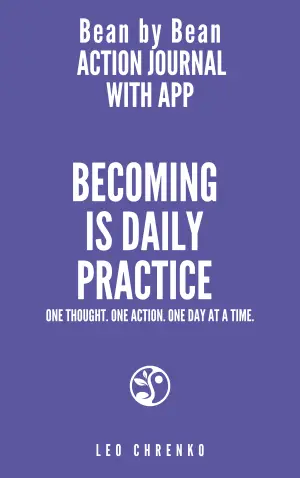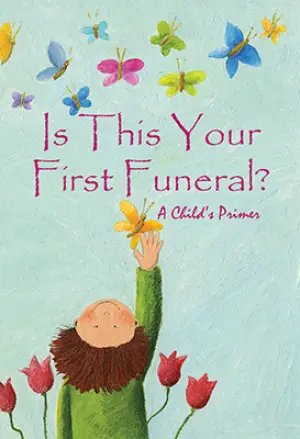Writing a Christian book is a fulfilling journey, but getting it published can be a complex challenge. Many aspiring authors struggle with how to create effective book proposals that grab a publisher’s attention. Publishers seek authors who clearly understand their audience and know exactly how to communicate the project’s value. Successful proposals show this clarity up front and clearly convey the project’s purpose.
The answer is straightforward: a well-structured book proposal that clearly outlines your book’s message, target audience, and market potential will greatly improve your chances of securing a publishing deal.
Table of Contents
What is a Christian Book Proposal?
A Christian book proposal is a document that outlines your book idea and persuades publishers that your work will resonate with Christian readers. It includes several critical components: an overview of the book, the target audience, market analysis, author bio, and a detailed chapter outline.
The Importance of a Strong Proposal
A solid proposal is essential for gaining the attention of publishers, especially in the Christian genre, where competition is fierce. A well-structured proposal not only showcases your manuscript but also demonstrates your understanding of the market. When done right, it acts as a roadmap that helps publishers visualize your book’s potential.
Understanding the Components of a Solid Proposal
When crafting a Christian book proposal, you must include several core components. Let’s break them down.
1. Overview of the Book
Begin with a compelling overview that summarizes your book in one to two paragraphs. This section should provide the book’s title, genre (non-fiction, fiction, devotional, etc.), and a concise description of what makes your book unique.
For instance, if you’re writing a book titled “Faith in the Flipside,” you might outline how it explores the complexities of faith amidst modern challenges, using relatable stories from everyday life. Your overview should convey the heart of your message without turning into an epic novel; keep it short and engaging.
2. Target Audience
Identifying your target audience is crucial. Who are you trying to reach? Are you writing for youth, women’s groups, or perhaps leaders in the church?
For example, if your book addresses mental health issues from a Christian perspective, your target audience could be those grappling with anxiety and depression, as well as church leaders seeking to provide support. By clearly defining your audience, you help publishers understand the potential market for your book.
3. Market Analysis
Publishers want to know that your book will sell. Conducting a market analysis will show that you’ve done your research.
Look into current trends within Christian publishing. If you notice the rise of books on spiritual growth during challenging times, emphasize this in your proposal. You could mention authors like Matt Chandler or John Piper who have successfully tackled similar themes, and cite how their books have performed in sales.
4. Competitive Titles
List comparable books in your genre, detailing their strengths and weaknesses. This comparison establishes that you are aware of the competition and that your book fills a gap in the market.
For instance, you could say, “While ‘The Purpose Driven Life’ provides a broad outlook on life’s meaning, my book zooms in on actionable faith practices that readers can apply daily.” Clearly stating the unique angle of your project sets your work apart.
5. Author Biography
In your biography, present yourself as an authority in your subject matter. Share your credentials, experience, and why you are the ideal person to write this book.
If you have a background in ministry or counseling, highlight it. If you’ve published articles or spoken at conferences, include these accolades. Coming across as knowledgeable and trustworthy is fundamental in the Christian publishing world.
6. Proposed Outline and Chapters
A strong proposal often includes a detailed chapter outline. Break down your book into chapters, providing a summary for each. Publishers prefer proposals offering clarity and specific details, as chapter outlines help convey the book’s flow and structure.
For example, if your book is about developing spiritual resilience, your chapters could be titled “Finding Hope in Chaos,” “The Power of Prayer,” and “Building a Supportive Community.” Every summary must highlight the central ideas discussed, leading readers clearly from one point to the next.
7. Sample Chapters
Including one or two sample chapters allows publishers to gauge your writing style and tone. This part is your chance to shine!
If you’re writing a deeply personal narrative, ensure that your voice comes through clearly. For example, in a sample chapter about the struggles of faith during adversity, incorporate vivid descriptions and compelling anecdotes that draw readers into your story and instantly connect them to the content.
8. Marketing and Promotion Plan
Publishers are increasingly looking for authors who can actively participate in marketing. Outline what promotional strategies you plan to implement.
Social media campaigns, speaking engagements, and partnerships with churches or Christian organizations can be great avenues. If you have an established online presence or a list of followers, mention it. Publishers value an author committed to staying involved beyond submitting a manuscript.
9. Visual and Aesthetic Considerations
In a visually driven market, consider discussing any visual elements you believe could enhance your book’s appeal. Cover design, illustrations, or even formatting styles can be significant.
You might suggest a striking cover image that speaks to your book’s theme, or special features like discussion questions at the end of each chapter. These elements can help your reader engage more deeply with your content.
10. Unique Selling Proposition (USP)
What makes your book stand out? It’s your Unique Selling Proposition.
This USP can be a unique approach to a common topic, exclusive research findings, or a fresh perspective on faith. For instance, if your book combines personal testimony with actionable faith-based solutions for modern problems, ensure this emphasis is clear in your proposal.
Tips for Writing Your Proposal
Be Concise
Keep your proposal clear and to the point. Publishers often review dozens of proposals, so make sure each section is straightforward.
Use Professional Formatting
A well-organized proposal looks professional and is easier to read. Use headings, bullet points, and consistent fonts to enhance readability.
Tailor to Your Audience
Research the publishers you’re submitting to and tailor your proposal to their guidelines. Some may prefer certain formats or require specific information.
Show Passion
Your enthusiasm for your topic should shine through your writing. Make it clear why this book matters to you and why it should matter to readers.
Understanding Publisher Expectations
Proposal Length
No single proposal length fits every situation. Publishers typically expect proposals between 10 and 30 pages, but requirements differ among publishers. Include all required sections clearly, leaving out unnecessary details or filler content.
Comparative Titles
Identify at least three comparable titles and explain how your book differs. Doing this not only shows that you’ve done your homework but also helps publishers gauge your book’s position in the market.
Platform
Publishers are increasingly looking at an author’s platform—your ability to market the book and reach an audience. If you have a blog, social media following, or connections to churches or organizations, include that information.
Networking in the Christian Publishing Community
Building relationships within the Christian publishing industry can significantly enhance your chances of getting published. Attend conferences, participate in writer’s groups, and engage with others on social media platforms.
Many writers find success through word-of-mouth recommendations or personal connections. For example, you may meet an editor at a conference who has a particular interest in your topic area; this could lead to an opportunity that you wouldn’t have found otherwise.
Submitting Your Proposal
Research Publishers
Not all publishers are created equal. Research those who specialize in your niche within Christian publishing. Investigate their submission guidelines, and make sure your proposal meets their specific requirements.
Query Letters
Instead of immediately sending the entire proposal, start with a short query letter to check interest. This letter should be a brief introduction to your book, your qualifications, and a request for permission to send a full proposal.
Example: “Dear [Publisher Name], I am seeking representation for my book, ‘Wrestling with Faith: Finding Strength in Uncertainty.’ With a focus on integrating scriptural wisdom with relatable personal narratives, I believe this book will resonate with young Christian families.”
Follow-Up
After submitting your proposal, be sure to follow up if you haven’t heard back within the indicated timeframe. Keep your follow-up polite and brief.
Sources of Inspiration
Professional groups such as the American Christian Fiction Writers (ACFW) and the Christian Authors Network provide excellent resources. Additionally, attending writing conferences or workshops can offer valuable insights and networking opportunities.
Online Courses
Courses on platforms like Udemy or Coursera can also provide structured lessons on writing and publishing a book proposal.
Additional Information
When it comes to Christian book proposals, some insider tips can make your submission stand out.
- Target Your Audience: Know the specific demographics of the Christian market you want to reach. This part includes understanding denominational differences, age groups, and cultural backgrounds.
- Keyword Research: Utilizing the right keywords can enhance discoverability. Identify trends in Christian topics and incorporate these keywords into your proposal to capture attention.
- Feature Testimonials: Including endorsements from recognizable figures or leaders within the Christian community can add credibility to your proposal, giving it an edge.
- Highlight Your Unique Contribution: Publishers want to know what sets your book apart from others. Clearly outline what new perspective or understanding your book offers on familiar themes.
- Engage with Current Issues: Addressing contemporary issues faced by the Christian community in your book proposal can make your project relevant. Show how your book speaks to current needs or challenges.
- Format Matters: Use a clean, professional format for your proposal. Visual appeal and organization can make a significant difference in making a strong impression.
- Strong Opening Hook: The first paragraph of your proposal is your chance to grab attention quickly. Start with an engaging statement or question that compels the reader to continue.
- Be Specific with Your Content Outline: Break down your chapters and provide detailed descriptions on what each will cover. This approach shows that you have a clear plan and vision for your book.
- Know the Publisher’s Vision: Research the publishing house’s mission and recent titles. Match your proposal closely to their objectives to demonstrate compatibility.
- Include a Marketing Plan: Publishers appreciate when authors take the initiative to plan for their book’s promotion. Outline how you intend to market your book, including social media strategies and potential speaking engagements.
- Personal Connection: Share your journey or connection to the topic. This approach adds authenticity and can resonate with the publisher on a deeper level.
- Be Ready for Revisions: Be prepared to adapt your proposal based on feedback. Flexibility demonstrates your willingness to collaborate and improve your work.
- Check for Guidelines: Each publisher has specific submission guidelines. Tailoring your proposal according to their requirements can increase your chances of getting noticed.
- Brevity is Key: Editors are busy. Keep your proposal concise. Edit to ensure clarity and directness without losing essential information.
- Networking: Building relationships in the Christian publishing community can provide insights and opportunities that help your proposal reach the right people.
Frequently Asked Questions (FAQs) Related to Christian Book Proposals
Q. What is a Christian book proposal?
A. A Christian book proposal is a document used to pitch a book idea to publishers. It outlines the book’s concept, target audience, market potential, and the author’s qualifications.
Q. How important is the target audience in a book proposal?
A. The target audience is crucial. Publishers need to know who will read your book and how it meets their needs. Knowing your target audience helps publishers determine the book’s marketability.
Q. What should be included in a Christian book proposal?
A. A good proposal should include a title, a summary of the book, an author bio, a chapter outline, a marketing plan, and information about the competition.
Q. How do I write a compelling author bio?
A. Your author bio should highlight your background, credentials, and any relevant experience that connects you to the book’s topic. Keep it concise and professional.
Q. What is the difference between a book proposal and a manuscript?
A. A book proposal is a pitch for your book idea, while a manuscript is the complete written content of the book. Proposals are often submitted before the manuscript is completed.
Q. How can I make my book proposal stand out?
A. To stand out, be clear and passionate about your book’s message. Use engaging language, provide compelling reasons why your book is needed, and demonstrate your platform.
Q. Should I include market research in my proposal?
A. Yes, including market research can strengthen your proposal. Show potential sales figures, trends in Christian publishing, and how your book fits into the current market landscape.
Q. What formatting should I use for my book proposal?
A. Use a standard business format. This format typically includes a title page, double spacing, clear headings, and a readable font like Times New Roman or Arial.
Q. How long should a typical book proposal be?
A. A typical book proposal is usually between 15 to 30 pages, depending on the publisher’s guidelines. Be concise but thorough in covering all necessary details.
Q. Can I submit my proposal to multiple publishers at once?
A. Yes, you can submit to multiple publishers simultaneously, but check each publisher’s submission guidelines first. Some may request exclusivity during their review period.
Conclusion
Crafting a strong Christian book proposal is essential for capturing the interest of publishers. By clearly outlining your message, target audience, and marketing strategies, you set the stage for a successful partnership. Keep in mind, creating your proposal goes beyond a simple routine. This proposal opens the door for expressing originality, ideas, and clear intentions. With attention to detail and a passion for your subject, you can create a compelling proposal that stands out in a competitive market. Now, get started on turning your ideas into a polished proposal that showcases your work and faith!







